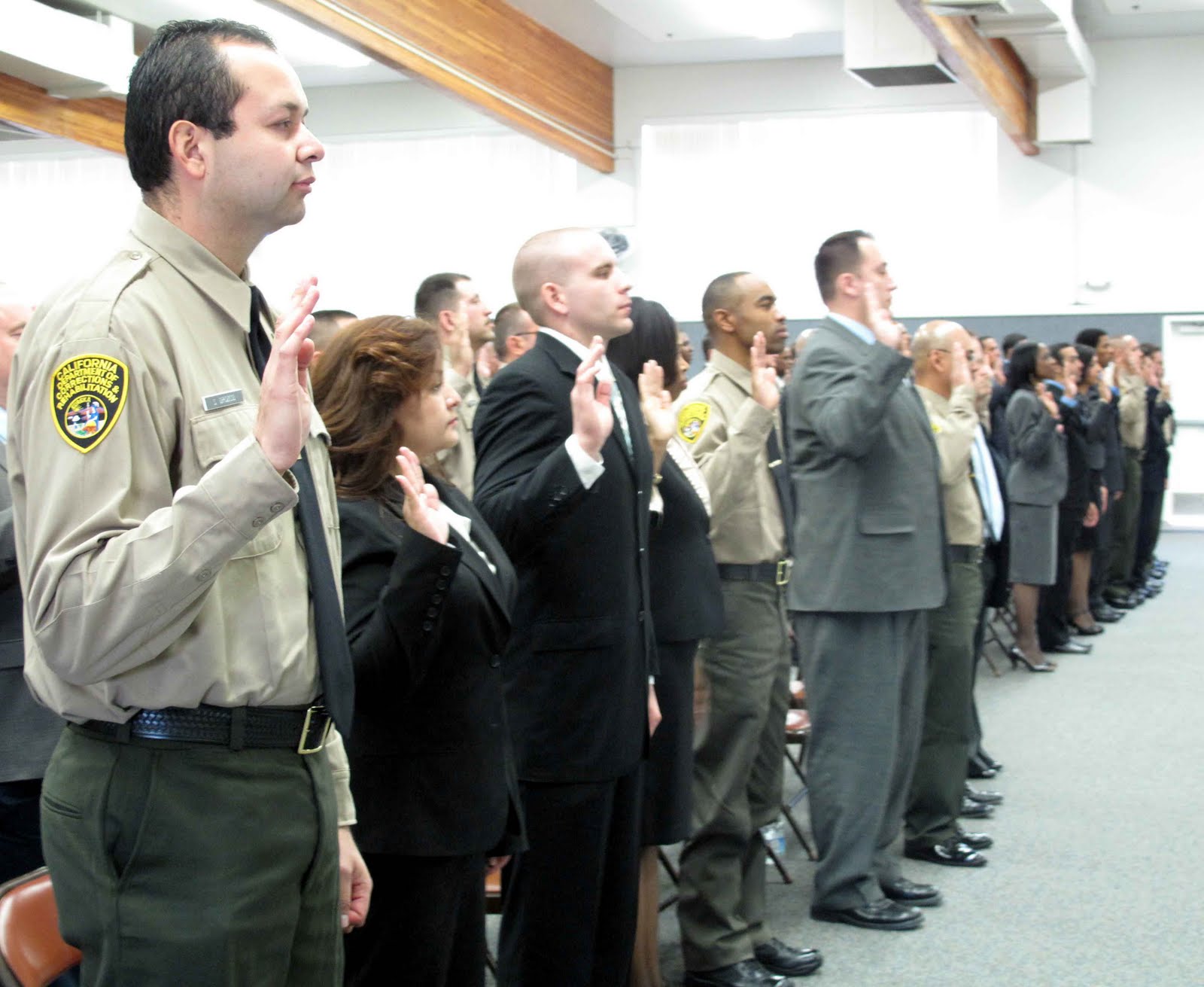Cadet age range is rare for class
The 71 Division of Juvenile Justice (DJJ) academy graduates may be new to the world of youth corrections, but they bring a wealth of experience spanning several generations.
“This is the biggest age gap we’ve ever had,” said Captain Kenneth Fewer, who directed the 16-week academy. The youngest cadet was 23 while the oldest was 57.
Graduates of the first DJJ academy in two years enter new careers as Youth Correctional Counselors and Youth Correctional Officers.
A study of the backgrounds of this graduating class revealed some interesting facts. Some graduates traded their local law enforcement badges for DJJ shields. Many made career changes forced by budget cuts at local agencies.
“It just shows how tough things are out there,” said Fewer.
Law enforcement is often a family tradition
The March ceremony was attended by an estimated 500 family members. Those attending also demonstrated that working in law enforcement is often a family tradition.
As they walked across the stage, many graduates were presented badges by family who are CDCR or DJJ officers.
In other cases, badges were presented by relatives who are current or retired law enforcement officers. In one case, a US Navy officer in full dress uniform presented the badge.
After the ceremonies, among the congratulatory hugs and picture taking, the honor of pinning the bright new badges for the first time went in some cases to spouses or children. This is a sign the career ahead involves the entire family.
In addition to physical workouts and pepper spray sessions, the cadets mastered 110 lesson plans, passing five major exams.
The academy covered a wide range of topics including effective ways to diffuse a violent situation, treatment programs and their importance in rehabilitation.
DJJ Deputy Director Steve Kruse reminded the class of their role in rehabilitation and public safety.
“We probably have the most violent youth in the country,” he said. “The most important thing we teach you is to make changes in their lives, remold them and change their behavior. You’re in for the ride of your life.”
Follow CDCR on YouTube, Facebook, X (formerly Twitter). Listen to the CDCR Unlocked podcast.
